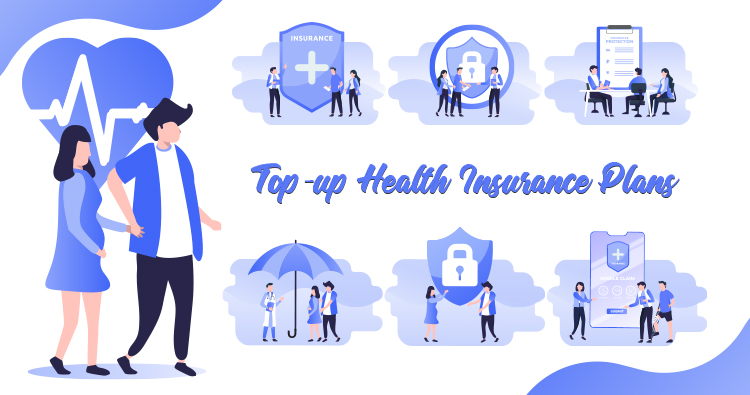What are Top-up Health Insurance Plans, and how can these be beneficial?
When you order a pizza, the billing executive usually asks whether you need any top-up of cheese, olives, chicken, or other toppings over the basic pizza you ordered. So, these toppings can be compared with the top-ups in the health insurance industry. Every mediclaim policy has a certain sum assured or coverages which one may exhaust, and thus to have better security, top-up plans come in handy at a reasonable cost.
How do top-up insurance plans work?
Suppose you have purchased a mediclaim policy which has a sum assured of Rs. 10 lakhs. However, given the ever-increasing cost of medical treatment and increased risk of chronic illnesses, especially after the pandemic, Rs. 10 lacks can get exhausted within a few days at the hospital. So, in this scenario, you can have two ways out. You can buy another insurance that has a higher sum assured, or you have a top-up plan to increase your sum assured, but the difference would be in the premium.
Top-up insurance comes into play when the primary insurance policy has been exhausted. Suppose you have this Rs. 10 policy and you fell ill with a chronic liver problem, and the bill amounted to Rs. 16 lakhs. Your primary policy will get completely exhausted, and the remaining Rs. 6 lakhs can be paid using the top-up policy.
Often people confuse top-up policies with riders while both are entirely different. Top-up policies are like primary insurance or reimbursement policies, but the difference is in the premium or the cost of having one.
Features of top-up insurance policies
- As said above, these policies are similar to the primary health insurance plans, so you can also convert them into primary ones.
- If you have a top-up insurance plan covering both parents, the child can automatically get coverage in the same plan.
- There is no upper limit or sub-limits on expenses at the hospital like bed charges, doctors’ fees, and others.
- Many of the top-up plans offer cumulative bonuses on the sum assured for the years where no claims are made, Unlike basic health insurance, top-up plans don’t require you to go for health check-ups. You can avail of these plans based on your basic health insurance policy.
- The top-ups can be renewed every year without any limit.
Coverages provided by top-up plans
Top-up plans usually cover the following expenses:
- Pre-hospitalization expenses of 60 days before hospitalization
- Post-hospitalization cost of 90 days after discharge from the hospital
- Day-care procedures requiring less than 24 hours of hospitalization
- Some of the plans also cover the organ donor’s expenses
- Every hospitalization expense will be covered, from room/ bed charges to doctors’ fees, medications, nurse or attendants’ fees, OT charges, artificial life support machinery costs, implants, and diagnostic procedures as well.
Who should buy top-up health insurance plans?
While anyone can buy these plans, top-ups are more suitable for families with elderly people. As the health risks increase with age, the chances of exhausting basic health plans also increase when there are elderly people. So, having top-up and primary insurance can be beneficial for older adults. Also, if someone has some chronic diseases and requires hospitalization frequently, having a basic health insurance policy of a higher sum assured along with top-up plans can be beneficial.
Advantages of top-up plans
- Top-up policies can be a savior when you have exhausted your primary policy and still, there are many months before the policy renewal. Suppose you need hospitalization within this duration, and then you can use the top-up plan and not have to worry about the expenses at the hospital.
- While you can get the same coverage, the premium you will pay for top-ups will be much less than for primary policies.
- You can also avail of tax benefits under section 80D of the IT Act for the premium you pay for top-up policies.
Conclusion
While general inflation is scaring everyone, medical inflation is at some other level making many families lose their life savings. Thus, having top-up plans to secure your health and finances can be a wise decision to take at this moment.
This blog is purely for educational purposes and not to be treated as personal advice. Insurance is a subject matter of solicitation.






